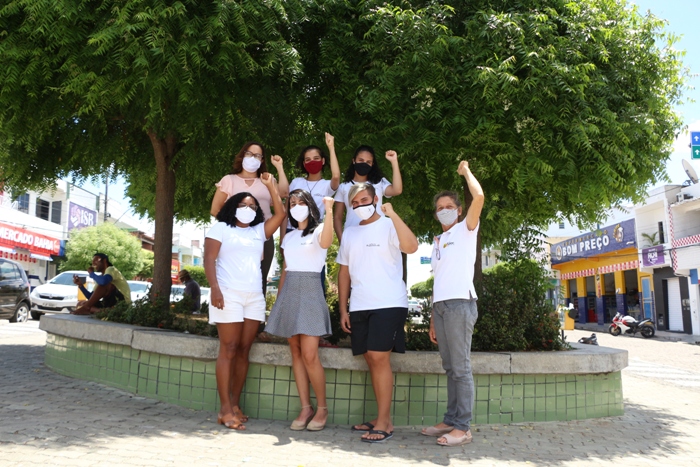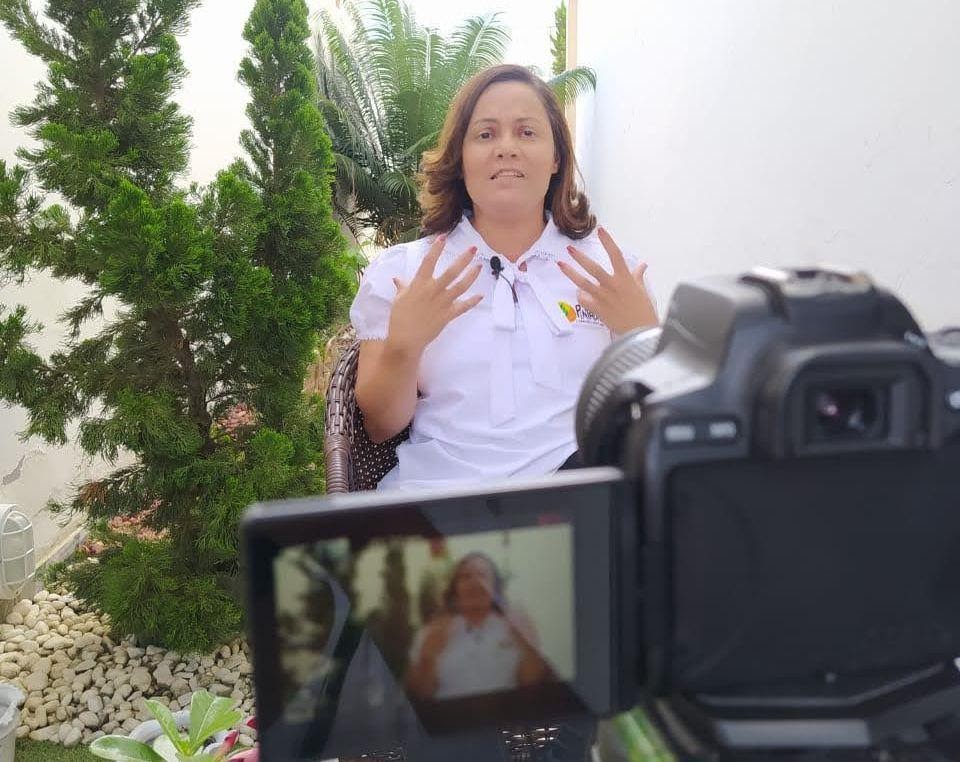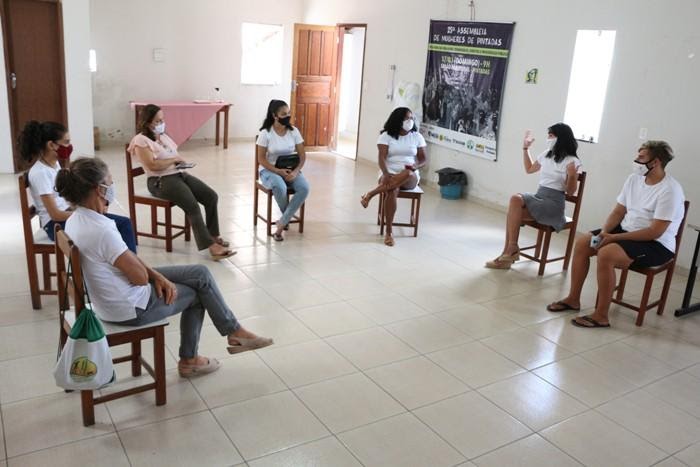The “Vozes das Mulheres” project breaks through the historic invisibility to value contributions of several women in the city’s development

Farmers, presidents of associations and cooperatives, educators, popular culture representatives, a bank manager, a council member, a mayor, and a state deputy. The history of the municipality of Pintadas in the Jacuipe basin cannot be told without highlighting the role that women have played throughout its history in the different spaces of power and participation.

With the objective to put in the limelight the resilience that marks their lives, the “Vozes das Mulheres” (eng. Women’s Voices) project seeks to break through the historic invisibility and to value contributions of several female characters in the city’s development process. This initiative is organized by the Brazilian Grassroots Women’s Platform (Redeh Pintadas) linked to the Huairou Commission, supported by the Swedish International Development Cooperation Agency (SIDA).
The initiative also seeks to awaken critical thinking and foster youth leaders, who are the protagonists in all stages of the memory reconstruction, including the production, interviews, and writing. Since the process started four months ago, period, 17 out of a list of 40 women were interviewed. The collected material will be used to produce content that would be disseminated via different media platforms.
“I did not know the people, my identity, nor the struggles that our people experienced. I am learning and being inspired by so many women with whom we speak. I could not debate or explain my ideas before; I am learning and renewing myself,” says Lívia Rufino (19), emphasizing how participation in the project changed her perception of local history and of her identity.
“After discovering so much about Pintadas, I developed my intellectual side and my sensitivity towards people, especially during quarantine when people are forgetting one another,” stresses Maizy Ríos (18). She says the project awakened her desire to study and give back to the municipality.

“I am excited and very happy with the results that have collectively been achieved. Although my mother is a member of the social movement (editor’s note: Redeh Pintadas), I am now getting to know our history better. After this experience, I can see myself more as a native of Pintadas, love my city more, and appreciate the struggle of women who have always been left out,” noted Elinne Coelho, project coordinator.
Henrique Sampaio and Del Brandão are part of the team and talk about the joy of knowing the history of the municipality and the women who struggled to gain their place in society. “This incredible opportunity changed my life. I am leaving with a totally different outlook,” Henrique said.
The professor and council member Neia Bastos, one of the project organizers, highlights the importance of oral history for the memory construction and the construction of youth identity. “Certainly, everything they felt and lived does not translate to the texts. I am sure that nothing will be as before as new projects and dreams will be built.”
“We have always dreamt of involving youth in knowing and preserving our history, using the right language, so that they can be passing it on. Now that we are doing it, we have the intention of going forward,” said Nereide Segala, farmer and one of the coordinators of the Redeh Pintadas network.

Redeh Pintadas is a coalition of grassroots womens’ movements, linked to the Huairou Commission, working in close to 50 countries to promote and strengthen collective strategies to address gender inequality, promote women’s empowerment and economic autonomy, effective participation in power and decision spaces, combat domestic violence, and promote community led environment resilience and sustainability in the context of climate change.
The project is coordinated by the Redeh Pintadas, which also manages the Center for Solidary Economy of the Jauipe Basin. Its member organizations are the Ser do Sertão Cooperative, the Pintadas Women Association (in Bahia), the Palomas Women Network (Pernambuco) and the Union of Housing Movements of São Paulo (São Paulo).
Original text in Portugese by Lourivânia Soares, journalist and Coordinator of the Grassroots Women Platform in Brazil.
